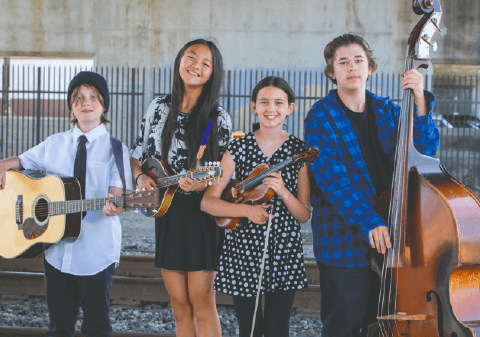San Francisco’s vibrant film scene, which offers a rich and diverse “ecosystem” of independently produced movies, can require as much creativity by viewers in search of a good, or provocative, time as it does to produce the work.
According to Peter L. Stein, local film festivals that aren’t to be missed include the recently completed SF International Film Festival, and the upcoming DocFest 14 – June 4 to 18 – Frameline39 – June 18 to 28 – and Jewish Film Festival35; July 23 to August 9. Taken together, these events enable a San Franciscan with time on their hands to view flicks virtually non-stop throughout the summer, with a few weeks available to take in the more commercial seasonal blockbusters.
Stein has firsthand knowledge of what the City’s film festivals have to offer. He’s written, directed and produced documentaries for KQED, served as head of the San Francisco Jewish Film Festival, and is currently senior programmer at Frameline, the San Francisco International LGBTQ Film Festival. According to Stein, filmmakers have to grapple with a complex set of economic challenges, including securing effective distribution channels, determining how best to leverage festivals to launch new works, and higher rents for commercial and living spaces caused by the less artsy but wealthier technology sector.
Frameline supports filmmakers by offering modest grants to finish projects. A 2013 recipient of Frameline Completion Funds, Visible Silence, a documentary by local filmmakers Ruth Gumnit and Marguerite Slamon, focuses on a community of Thai women. In addition to the roughly $4,000 contributed by Frameline, the film received financial support from the Horizons Foundation, Astraea Lesbian Foundation for Justice, GAPA Foundation, Kickstarter and others.
Jenni Olson’s latest film The Royal Road, which received completion funds from Frameline, premiered at the Sundance Film Festival earlier this year, screened at the SF International Film Festival and will be shown at Frameline. The movie refers to El Camino Real, and was shot throughout California. “The film offers up a primer on the Spanish colonization of California and the Mexican-American War alongside intimate reflections on nostalgia, the pursuit of unavailable women, butch identity and Alfred Hitchcock’s Vertigo,” said Olson. Olson is a former Frameline festival programmer, award-winning filmmaker, author, historian and vice president of e-commerce and consumer marketing at Wolfe Video.
“I like to think of Frameline not just being a festival, but a central force in the ecosystem that actually causes films to be made; filmmakers knowing that’s where they want it to be shown,” said Olson. “Personally, I picture that Frameline audience at the Castro. They are my ultimate audience, because they really, really want to see the film.”
Frameline was created by photographer Dan Nicoletta when he worked at Harvey Milk’s Castro Camera. He and his coworkers were captivated by the volume of film processing, still and moving images, which passed through their hands. In 1976, Nicoletta, filmmaker and impresario Marc Huestis, and photographer Bern Boyle collaborated to launch a forum where filmmakers, activists, and audiences could discuss important topics. That sense of community isn’t possible watching films at home through Netflix, Amazon, or other streaming services.
Festivals, which tend to be managed by a small overlapping set of dedicated individuals, are continually looking to expand their audience. Olson, who is on the board of the SF Jewish Film Festival, pointed to the $30 “35 and Under Pass,” which is intended to attract young adults to the festival. She emphasized that festivals are about more than watching movies: often the filmmakers, stars, and/or film’s subjects are present in the theater. Especially with identity-based festivals, such as Frameline, Jewish, CAAMFest – Asian-American – it’s important to “see yourself reflected on the screen and in the audience and figure out who you are and what it all means,” she said.
Once a film – whether feature, documentary, or short – is completed, it’s typically submitted to the festival circuit. The starting point is a premier, which under the best of circumstances is followed by subsequent screenings to develop an audience, attract reviews, and create a buzz. Depending on responses from festival goers, distributors, and broadcasting programs, the film might go on to a theatrical release, television broadcast, DVD issuance, educational distribution and/or digital platforms, such as video-on-demand or Hulu. Charting this ever-shifting territory can be challenging for filmmakers as they vie to get their film seen.
Potrero Hill resident Jack Walsh directed Feelings are Facts: The Life of Yvonne Rainer, which premiered at the Berlin International Film Festival and will screen at several other festivals internationally, including Frameline. Rainer, an experimental filmmaker and pioneering choreographer who came out as a lesbian at the age of 56, lived with anarchist friends on the Hill in the early-1950s. In addition to making and producing films, Walsh served as an executive producer at KQED, and was director of the National Alliance for Media Arts and Culture from 2003 to 2014.
Walsh isn’t alone as an artist living or working on or near the Hill. Local filmmakers include Dawn Logsdon – who edited The Royal Road – Lidia Szajko, Lisa Swenson, and Susan Stryker.
For more information about this summer’s festivals: http://sfindie.com/festivals/sf-docfest/; http://www.frameline.org/; http://www.sfjff.org/.



